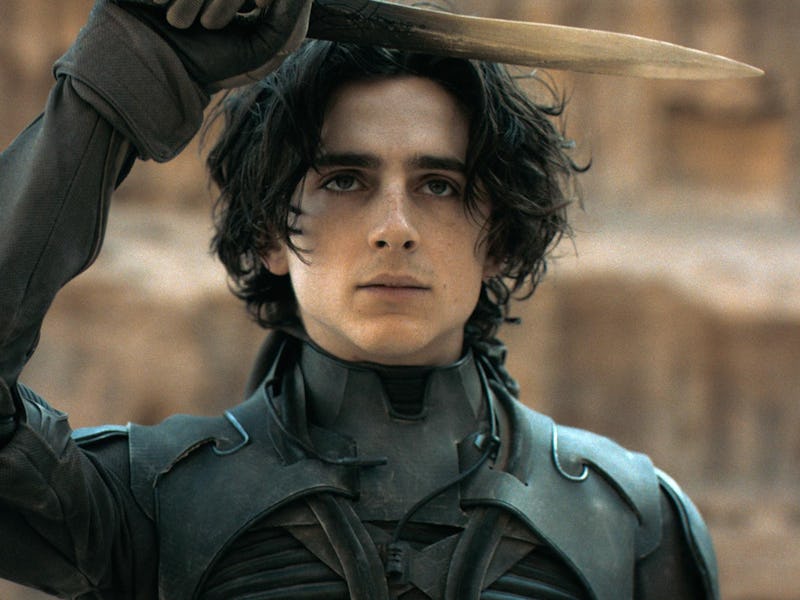Should you read Dune before seeing the movie? A spoiler-free guide
There's a good case to read the famous Frank Herbert book before the new movie. But you might not need to finish it.

To Dune or not to Dune? If you’ve never read the Frank Herbert novel that the new film is based upon, you might be asking yourself if you should read the book before the movie comes out.
On the one hand, if you read the book, you might be totally spoiled on the movie's events. On the other hand, reading the book will help fill some gaps that exist in any adaptation of a book with this kind of scope.
So, what should you do? Here’s a solution: Only read half the book. Here’s why. No spoilers ahead.
How much of Dune do you need to read?
The new film — Dune: Part One — will adapt half of the book, which means the movie will end right in the middle of the book.
Without spoiling the movie’s ending, here’s a picture of a paperback copy of Dune (2010, Ace edition) with an arrow that shows you exactly where the new movie will end.
The spice must flow... exactly to this page.
So, could you read just up to about page 500 and be in good shape?
Short answer: Yes! You will be “spoiled” on the events of the movie Dune: Part One, but this half of the book will (mostly) not spoil the events of the (hypothetical) sequel, Dune: Part Two. There is one catch, however.
Reading Dune (kind of) spoils itself
John Schoenherr’s for the first ACE paperback of Dune.
Dune spoilers are somewhat unique in the world of science fiction mainly because the original novel telegraphs spoilers before they happen in the book. Herbert frames the novel as a quasi-historical document, which retells the story of Paul Atreides from the future point of view.
As a result, several chapters begin with epigraphs that hint at events later in the novel. In this way, you might have a hint that certain characters are going to die before they die. For example, in his book Galapagos, Kurt Vonnegut throws an asterisk next to a character's name right before they die. Herbert isn't quite that flippant, but many of the epigraphs from Princess Irulan (and other “sources”) are pretty darn close.
The first edition dust jacket of Dune.
The larger point you can argue is that reading half of Dune is not too different from watching a trailer for the film that is like 40 hours long. Intellectually, you kind of already know the basics of Dune: A family goes to a desert planet to fight for control of the Spice, Paul (Timothée Chalamet) is maybe the Chosen One, sandworms are there, and people have glowing blue eyes.
That quick synopsis isn’t the same as experiencing Dune. After all, Herbert designed the book to be read more than once so that the reader could recontextualize the story from different points of view.
In this way, no Dune spoiler is really a spoiler. Everything is just a new perspective on the same story. The upcoming film is one way into that story. Reading the novel halfway through is another way. No matter what, there’s no wrong way to do Dune. Spoilers aren’t the mind-killer, but trying to be spoiler-free is fine too.
Dune: Part One hits HBO Max and theaters in the US on October 22, 2021.
This article was originally published on